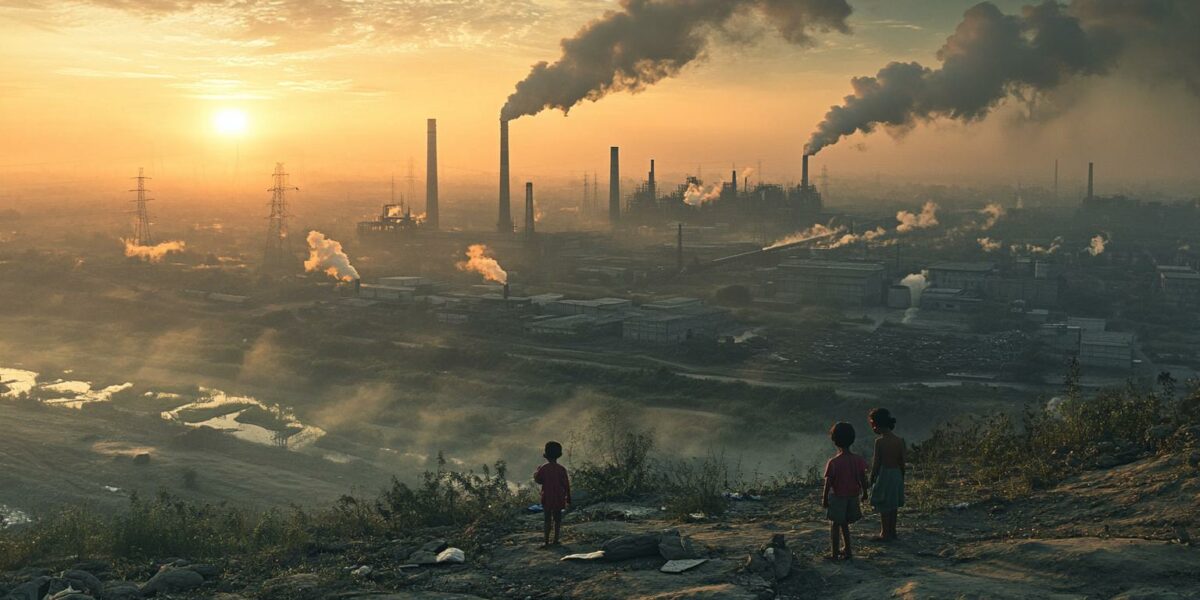Staggering Subsidies to Harmful Industries
Recent data reveals that over $650 billion annually in public funds are allocated to fossil fuel companies and intensive agriculture in the developing world. These subsidies are not only maintaining high greenhouse gas emissions but also accelerating the degradation of the natural environment, as highlighted by ActionAid.
Developed nations are also contributing to these detrimental activities. For instance, the UK allocates around $7.3 billion each year in subsidies to fossil fuels. This financial support perpetuates the cycle of environmental harm.
The sums involved in these subsidies are staggering. To put it into perspective, the funds could pay for the education of all children in sub-Saharan Africa three and a half times over annually. This comparison underscores the magnitude of the resources being misdirected.
Meanwhile, climate finance aimed at helping developing nations transition to low-carbon economies remains insufficient. Renewable energy projects receive 40 times less funding compared to the fossil fuel sector, making it challenging to shift towards a sustainable future.
Calls for Reducing Harmful Subsidies
Subsidies for fossil fuels and intensive agriculture have long been a significant barrier to achieving a low-carbon global economy. Various organizations, including the International Energy Agency and the World Trade Organisation, have repeatedly called for reducing these subsidies.
Despite these calls, some subsidies are intended to assist the poor or mitigate price increases. For example, the UK government provided an energy price guarantee to households when energy prices surged. However, this also led to fossil fuel companies re-investing in new oil and gas exploration.
In many cases, subsidies are directed towards politically influential industries or those with strong lobbying power. This misdirection of funds highlights the complex dynamics at play in maintaining the status quo.
ActionAid’s report, titled “How the Finance Flows: Corporate capture of public finance fuelling the climate crisis in the global south,” sheds light on the issue of “corporate capture”, where corporations influence government and public institutions to secure subsidies.
Urgent Need for Genuine Commitments
Arthur Larok, secretary general of ActionAid International, criticized wealthy corporations for their parasitic behavior, siphoning public funds and worsening the climate crisis. He also pointed fingers at governments in rich countries for their hollow climate finance promises.
According to Larok, “It is time for this circus to end. We need genuine commitments to ending the climate crisis.” This statement reflects the growing frustration with the lack of substantial action from developed nations.
ActionAid’s findings suggest that developing countries do not need to follow the high-carbon and intensive agricultural practices that have led to the current climate crisis. Instead, they can adopt a low-carbon model that allows for growth and prosperity without environmental destruction.
To achieve this, the authors call for:
- An end to destructive subsidies.
- Increased public finance from rich countries towards low-carbon efforts in the developing world.
- Stricter regulation of the banking sector to ensure human rights, social, and environmental considerations are met before financing harmful industries.
Shifting Towards a Sustainable Future
The report emphasizes that redirecting subsidies from harmful industries to sustainable initiatives is crucial for a low-carbon future. This shift requires a collective effort from both developed and developing nations to reallocate resources effectively.
Public finance should prioritize renewable energy projects and other low-carbon initiatives. By doing so, developing countries can transition to a sustainable economy without sacrificing growth or prosperity.
Stricter regulations in the banking sector are also necessary. Financial institutions should adhere to minimum standards for human rights and environmental considerations, ensuring that investments do not contribute to further environmental degradation.
Ultimately, the goal is to create a global economy that supports sustainable development. This requires a concerted effort to redirect funds, enforce regulations, and foster international cooperation in addressing the climate crisis.



Pepper
Great report, but how do we ensure developing countries adopt low-carbon models?
Christian
Is there any hope for a shift towards sustainable practices without major policy changes?
Emilia2
This just makes me so angry. What can ordinary people do to stop this?
OliveSymphony
Wow, £494bn is a lot! Time for a change, don’t you think?
Katherine7
Who benefits from these subsidies the most? Follow the money, they say. 💰
annabelle7
Imagine if all that money went to education instead. The world would be a different place!
Gizmo_Tempest
Thank you, ActionAid, for shedding light on this critical issue. We need more transparency in public finance.
charliecascade
Why are we still subsidizing fossil fuels in 2023? Absolute madness!
nora
This is shocking! How can we push our governments to redirect these funds towards renewable energy?